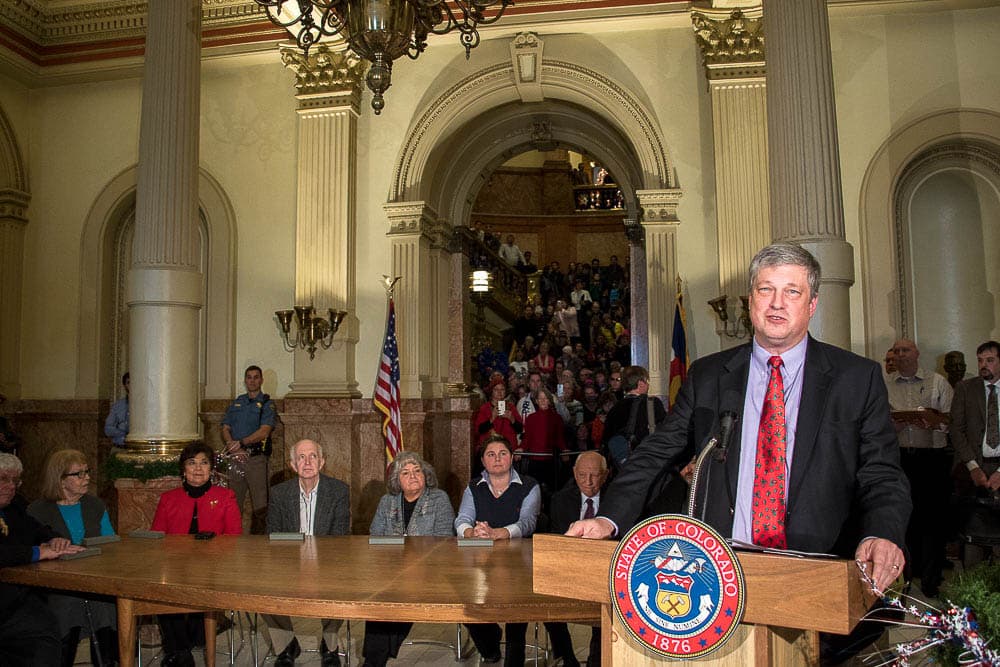
Since November, President Donald Trump has been very concerned about the totally unsupported notion that between 3 million and 5 million people voted illegally in the 2016 presidential election. He created the Presidential Advisory Commission on Election Integrity to get to the bottom of things.
Now that commission is seeking the voter registration lists and voter history of every voter in the country from the offices of all 50 secretaries of state. That includes Colorado.
Secretary of State Wayne Williams said Thursday in a press release that his office will be releasing voter information that is considered public record under Colorado law, which is most of it but not the most personally identifying parts. This is in response to a letter from Kansas Secretary of State Kris Kobach, vice chair of the commission and an advocate for more restrictive voting laws. He calls himself "the ACLU's worst nightmare," and you can read a long profile of him here.
And you can read the letter here.
State officials in California, Virginia and Kentucky have reportedly refused to comply with the request.
"In order for the Commission to fully analyze vulnerabilities and issues related to voter registration and voting, I am requesting that you provide to the Commission the publicly available voter roll data for Colorado, including, if publicly available under the laws of your state, the full first and last names of all registrants, middle names or initials if available, addresses, dates of birth, political party (if recorded in your state), last four digits of social security number if available, voter history (elections voted in) from 2006 onward, active/inactive status, cancelled status, information regarding any felony convictions, information regarding voter registration in another state, information regarding military status, and overseas citizen information," Kobach wrote.
A lot of voter information is public record. It gets used by political parties and campaigns to target their marketing and door-knocking, and it gets used by journalists for things like showing that someone running for local office hasn't bothered to vote in local elections in the past.
The publicly available voter registration list in Colorado includes the full name, address, year of birth, political party and vote history of every person registered to vote in the state. That's what will go to the commission. The publicly available list does not contain Social Security numbers, driver’s license numbers or full dates of birth, and that information will not be turned over to the commission, Williams said.
Williams, a Republican, has repeatedly defended the integrity of Colorado's voting system. While there have been isolated incidents of dead people voting or people voting twice (Republicans and Democrats), there's no evidence of organized voter fraud.
Kobach also sought feedback on seven questions related to the conduct of elections.
- What changes, if any, to federal election laws would you recommend to enhance the integrity of federal elections?
- How can the Commission support state and local election administrators with regard to information technology security and vulnerabilities?
- What laws, policies or other issues hinder your ability to ensure the integrity of elections you administer?
- What evidence or information do you have regarding instances of voter fraud or registration fraud in your state?
- What convictions for election-related crimes have occurred in your state since the November 2000 federal election?
- What recommendations do you have for preventing voter intimidation or disenfranchisement?
- What other issues do you believe the Commission should consider?
And Williams found an upside to the request.
"We are very glad they are asking for information before making decisions," he said in a press release about his office's response. "I wish more federal agencies would ask folks for their opinion and for information before they made decisions."












